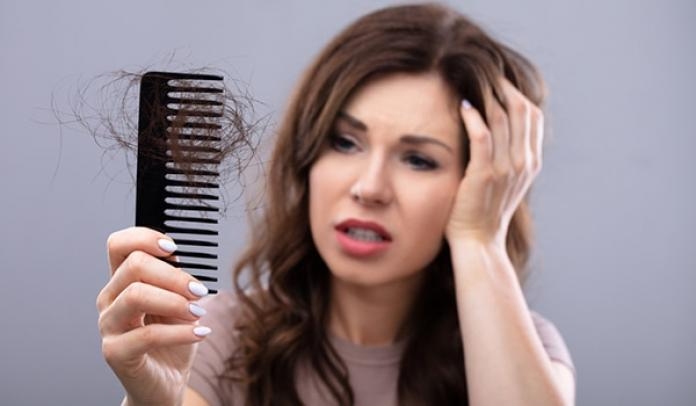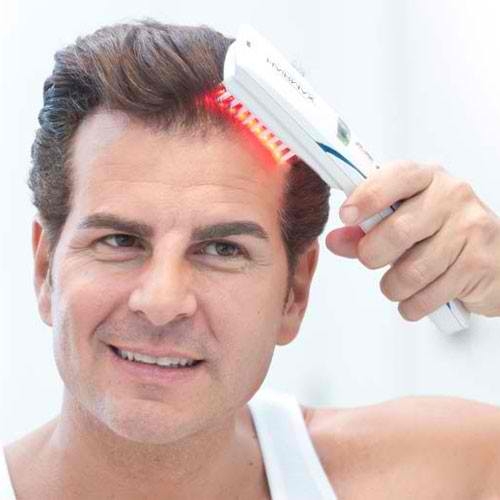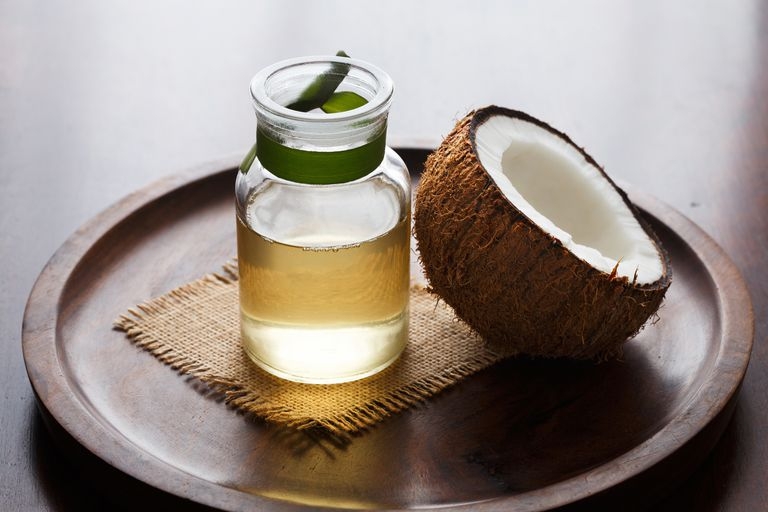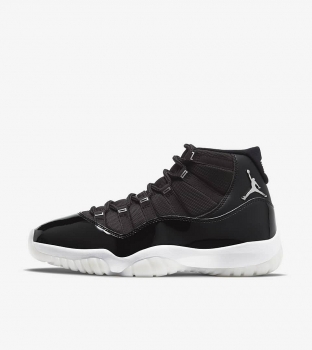9 Simple but Effective Ways to Avoid Hair Fallout
 |
| Our hair grows in a cycle with three distinct stages: active growth, resting and shedding. Photo: BeBeautiful |
What Causes Hair Loss?
Our hair grows in a cycle with three distinct stages: active growth, resting and shedding. Even a healthy person who isn’t experiencing excessive hair loss can expect to lose about 100 hairs per day!
Hair loss is a common side effect of aging, and typically affects men earlier than it does women. By age 40, about 50% of men will experience some degree of androgenetic alopecia (better known as male pattern baldness.) On the other hand, around 50% of women will experience female pattern baldness by age 70, according to One Good Thing.
If hair loss is sudden or patchy, you should talk to your doctor, as it may be a symptom of a larger condition. Other conditions that can cause hair loss include:
Hormonal changes from pregnancy, childbirth, menopause, or thyroid problems
Certain medications, like those taken for high blood pressure, depression, and arthritis
Radiation treatment
Nutritional deficiencies
Stress
Grooming practices
9 Simple Ways To Avoid Hair Fallout
1. Eat More Protein And Omega-3s
 |
| Photo: ADDitude |
Protein is present in every cell in your body and plays a crucial role in many bodily processes, including hair growth. A 2017 study of people with hair loss found that many had an amino acid deficiency, meaning they weren’t eating enough foods containing amino acids that are critical for protein production, and by extension, hair growth and strength.
If you’re struggling with hair loss, make sure you’re getting enough protein in your diet from sources like seafood, lean meats, eggs, and legumes. Fatty acids like omega-3s are also important for maintaining hair and scalp health, and you can get more of those in your diet from sources like seafood and flaxseed.
2. Supplement Your Vitamin Intake
And speaking of diet, don’t forget about vitamins! One that’s particularly important for stopping hair loss is vitamin A. Studies have found that retinoids, which are derived from vitamin A, can increase hair growth and prolong its active growth phase.
There are plenty of foods that are good sources of vitamin A, like leafy greens, carrots, and sweet potatoes, or you can get it in the form of daily supplements of vitamins and minerals. A collagen supplement can also support hair health and growth as a source of amino acids and antioxidant protection.
3. Use a Laser Comb
 |
| Photo: Body4Real |
Apart from finasteride and minoxidil, laser combs are the only hair-loss treatment to have received FDA approval. (In the UK, the medication and the combs have to be paid for privately as they are not available on the NHS.) A 2014 study of 103 men with pattern hair loss found a significant increase in hair density after 26 weeks of applying a laser comb across the scalp three times a week. The exact way the work of the comb isn’t fully understood, but it has been suggested that low-power lasers have an antioxidant effect on hair follicles, The Guardian cites.
4. Change your Hair Products
There is some evidence that many gels and other styling products may contribute to hair loss, as the chemicals within these products stay on the scalp and become trapped in the follicles, preventing the hair from coming to the surface. Avoid excessive use of hair gels and try more natural styling products, which contain fewer chemicals.
5. Using Coconut Oil for Damaged Hair
 |
| Photo: LiveAbout |
A study in 2018 found that coconut oil may help to prevent hair loss due to ultraviolet light damage or grooming habits. However, further research is necessary to confirm this, says Medical News Today.
Applying coconut oil to the scalp could strengthen hair and avoid loss from damage.
6. Try Scalp Massage
Some studies have suggested that scalp massage has the potential to increase hair density by improving blood circulation to the scalp and hair follicles, as well as increasing the activity of genes known to promote hair growth. An additional benefit is that massage helps to lower stress levels, another factor relating to hair loss.
7. Consider Prescription Medications
There are two clinically approved drugs for preventing further hair loss – finasteride and minoxidil. Finasteride works by inhibiting the hormone dihydrotestosterone (DHT), which causes the hair follicles to shrink and eventually fall out, while minoxidil increases blood flow and nutrient uptake to the follicles. Both treatments may result in some hair regrowth as well, but they include the risk of side-effects. Finasteride has been found to lead to erectile dysfunction and decreased libido in approximately 1 in 31 men, while minoxidil can result in skin irritation and allergic reactions.
8. Reduce Stress
 |
| Photo: MyFitnessPal Blog |
Stress and tension are some of the most common causes of hair loss and hair fall. If you’re experiencing hair loss and you’re also under a lot of stress, you should make it a priority to find effective ways to calm your mind and relax.
Some of the most effective practices for reducing stress include meditation, yoga, spending time outdoors, and making time for hobbies. Find one or two stress reducers that work for you and incorporate them into your schedule regularly to help prevent hair loss.
9. Avoid Hot Showers
Overly hot showers can cause damage to the scalp by stripping it of the essential oils that help to protect it, causing dryness and inflammation. There is no direct evidence that hot showers lead to hair loss, but some believe that scalp inflammation can result in miniaturization of the hair follicles and thinning hair.
Summary
Hair loss is a common occurrence, particularly from pattern baldness.
People looking for a treatment to help prevent or regrow hair have several potential options. The effectiveness of each option will vary from person to person.
People should talk to a doctor before starting a new hair loss treatment or taking supplements.
| Style Your Hair More Gently Depending on the cause, stopping hair loss can take some time. But in the meantime, you can help reduce hair fall by being smart about how you handle and style your hair. Set your hairdryer on cool and low settings, and minimize your use of flat irons. Don’t dye your hair more than one or two shades lighter or darker than its normal color to minimize damage from chemical treatments. If you use hair gel or hair spray, don’t wait for it to dry before you comb through it—if you do, the hardened hair is more likely to break. When your hair is wet, use a wide-toothed comb instead of a brush, and comb it lightly to avoid any pulling and tugging. Avoid unnecessary brushing, combing, curling or straightening. Excessive use of these tools and techniques will weaken the hair at the root level. Avoid taking hot showers, which can sap your hair and scalp of their natural oils and make your hair dry and brittle. Wash your hair with a mild shampoo, as harsher formulas may cause hair to become dry, brittle, and prone to breakage. Look for words like “gentle” or “soothing” on the label. |
|
Nowadays there is a very thin line between comfort and style. Sweatpant is more than a loose-fitting trouser that was used to worn by athletes ... |
|
Dalgona coffee has become one of the trendy Korean drinks since June 2020 as its catching colour it brings to the drinkers. Today, Knowinsiders would ... |
|
The Air Jordan 11 has become a familiar name in the eyes of sneakerheads and the basketball community. Holiday 2020 appears to feature another AJ11 ... |


























